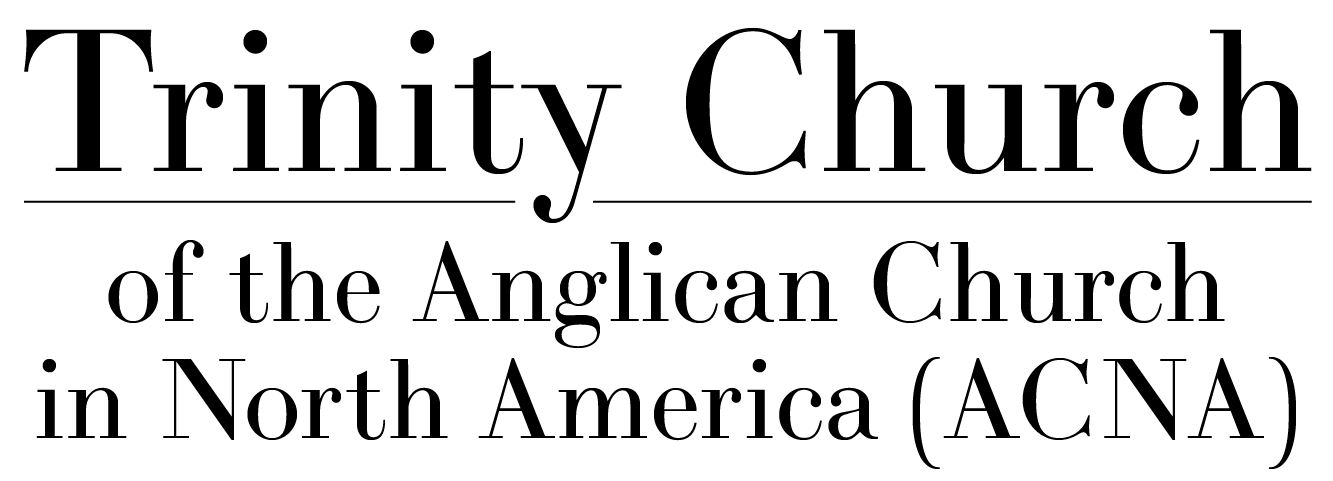Full Service
15th Sunday after Pentecost—Full Service
Trinity Church, 1589 Hwy 174, Edisto Island, SC 29438
www.trinityedisto.com 843-869-3568
15th Sunday after Pentecost, September 18, 2022
Holy Communion - Renewed Ancient Text; 2019 BCP, p.123
Order of Worship:
Open Hymn #450 All Hail the Power of Jesus Name
Song of Praise How Majestic Is Your Name (CCLI #258356)
Collect BCP, p.620
Amos 8:4-12
Psalm 138
Seq Hymn #470 There’s a Wideness in God’s Mercy
Luke 16:1-14
Sermon The Rev. E. Weyman Camp IV
Nicene Creed BCP, p.127
Prayers of the People BCP, p.128
Holy Communion BCP, p.132
Break Now the Bread of Life (CCLI #258356)
Spiritual Communion Prayer - BCP, p.677
Close Hymn #555 Lead On O King Eternal
Luke 16:1-14 Sermon Notes
Intro - Money
Luke 16:9 - And I tell you, make friends for yourselves by means of unrighteous mammon, so that when it fails they may receive you into the eternal habitations.
Worldly Resources & Priorities:
As Children: As Adults: As Believers:
Family & Friends Financial Family & Friends-Eternity
Physical Intellectual Financial Emotional Physical Intellectual
Intellectual Emotional Emotional
Financial Family & Friends Physical
How do we Make Eternal/Heavenly Friendships??
Invest our money with a Heavenly Goal.
Invest Money to our Local Church.
Malachi 3:8 - Will you rob God? Yet you are robbing me. But you say, How have we robbed you? In Tithes and offerings. … Bring the full tithe (10%) into the storehouse (Church), that there may be food in my house.
2. Invest Money for the Care of the Poor and Needy
Luke 12:33 - 33 Sell your possessions, and give to the needy. Provide yourselves with moneybags that do not grow old, with a treasure in the heavens that does not fail, where no thief approaches and no moth destroys. 34 For where your treasure is, there will your heart be also.
3. Invest Money to Influence Others for the Gospel -
Missions both Domestic and Foreign
Luke 24:46-47 - “Thus it is written, that the Christ should suffer and on the third day rise from the dead, 47 and that repentance for the forgiveness of sins should be proclaimed in his name to all nations, beginning from Jerusalem.
Why do Believers do this?
Because we know this is how we were brought in.
The Gospel is the Good News of the Cross and Resurrection of Jesus Christ by which we become the Righteousness of God.
Substitutionary Sacrifice:
II Corinthians 8:9 - For you know the grace of our Lord Jesus Christ, that though he was rich, yet for your sake he became poor, so that you by his poverty you might become rich.
The Historical Context and Explanation of the Parable of
the Dishonest Steward - Luke 16:1-14
“In summary, clearly the most probable cultural setting for the parable is that of a landed estate with a manager who had authority to carry out the business of the estate. The debtors were most likely renters ‘hakirin’ who had agreed to pay a fixed amount of produce for the yearly rent. The steward was no doubt making extras ‘under the table,’ but these amounts were not reflected in the signed bills. He was a salaried official who, in addition, was paid a specific fee by the renter for each contract. The master was a man of noble character respected in the community who cared enough about his own wealth to fire a wasteful manager.” (Poet and Peasant, Kenneth Bailey, 1983, p.94)
However, the Steward is fired, not jailed. The Steward’s plan is to risk everything on the quality of mercy he has already experienced from his master. If he fails, he goes to jail. If he succeeds, he will be a hero in the community. The key to his situation is that no one yet knows he is fired. He calls them in one by one. It is not harvest time.
The master looks at the freshly changed accounts and reflects on his alternatives. The master knows full well that in the local village there has already started a great round of celebration in praise of him, the master, as the most noble and most generous man that ever rented land in their district.
The master has two alternatives; go back to the debtors, explain it was a mistake and that the steward was dismissed. But the villagers joy will turn to anger and he will be cursed for his stinginess.
Second, he can keep silent, accept the praise and allow the steward to ride high on his wave of popular enthusiasm. The master is a generous man. He did not jail the steward earlier. To be generous is a primary quality of a nobleman in the East. He reflects for a moment and then turns to the steward and says, “You are a very wise fellow.” One of the definitions in the OT for Wisdom is an instinct for self-preservation. In a backhanded way the actions of the steward are a compliment to the master. The steward knew the master was generous and merciful. He risked everything on this aspect of his masters nature. He won. Because the master was indeed generous and merciful, he chose to pay the full price for his stewards salvation. (Poet and Peasant, Kenneth Bailey, 1983, p.102)
